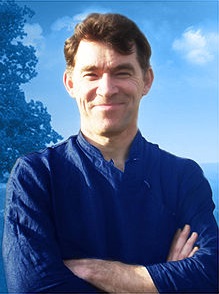Guest writer for Wake Up World
Imagine you have to spend almost all your time in a single room. Even worse, in the short periods when you’re allowed out of your room, you can’t venture beyond a small, confined area. You are also forced to live without possessions (aside from the bare minimum) and are unable to pursue any career or ambitions. You aren’t allowed any autonomy and have to live according to a strict discipline, following preordained rules.
[pro_ad_display_adzone id=”110028″]
A person might consciously choose to live this kind of life by becoming a monk or nun. Or they might be forced to live this kind of life by being sent to prison.
Of course, there are some massive differences between the lives of prisoners and monks or nuns. Choosing to live a restricted life of solitude and detachment is itself an act of freedom, compared to having a restricted life imposed on you as a punishment.
But as I show in my book, Extraordinary Awakenings, for a small number of people in prison, the lack of distractions may have a transformational effect. It may lead them to reflect on their lives and to explore their being in a way they have never done before, leading to an awakening.
Political Prisoners
As a young man in the 1930s, the author Arthur Koestler was living in Paris as a communist activist and journalist. During the Spanish Civil War, he traveled to Spain as a war correspondent and was arrested by Spanish nationalists. He was charged with espionage and sentenced to death. While in solitary confinement, waiting for his sentence to be carried out, he had a powerful spiritual experience in which, as he described it, “I was floating on my back in a river of peace, under bridges of silence. It came from nowhere and flowed nowhere. Then there was no river and no I. The I had ceased to exist.”1
This also happened to Sri Aurobindo, one of the greatest spiritual teachers and authors of the twentieth century. As a young man, he was inspired by the cause of Indian nationalism and became a leading figure in the protests against British colonial rule. At the age of 36 he was arrested by the British authorities and spent a year in prison.
Conditions in the prison were appalling. Aurobindo spent long periods in solitary confinement in a tiny cell. With nothing else to do, Aurobindo meditated for long periods. He found that his mind was restless and difficult to control. He was afraid of going mad and became so desperate that he prayed for help. Suddenly, in his words, “A great peace descended upon my mind and heart. A cooling sensation spread over my entire body. The restless mind became relaxed and joyful. I experienced a state of indescribable bliss…From that very moment, my suffering in prison evaporated.”2
The Prison Phoenix Trust
In the UK, an organization called the Prison Phoenix Trust which runs yoga and meditation classes in 82 secure institutions around the UK, supporting around 8 percent of the UK’s total prison population. At the core of the trust’s philosophy is the idea that prison can offer an opportunity for spiritual growth — that is, an environment where growth is more likely to occur than in normal, everyday environments.
The organisation receives a steady flow of letters and emails from prisoners who describe the positive effects of yoga and meditation. Some prisoners describe deep-rooted inner changes. One prisoner spoke of “finding the real me, letting go and shedding all the garbage I’d collected over the years.” Another person described “feeling at last a connection with my inner self. Nothing matters, I’m carefree, empty of worries, and consumed by positive energy, content with who I am.” Another correspondent commented, “There is a deeper me who is not that ego and is kind, compassionate, and cares about people.”
There are also some reports of powerful spiritual experiences, like those of Koestler and Sri Aurobindo. One prisoner described regular experiences of oneness during meditation in which “there’s just a still pool of consciousness without a ripple on its surface.” Another person spoke of being able to “tune in to emptiness”: “Sometimes I feel an expansion that goes out in all directions, way beyond the walls. … It feels like everything, the trees outside, the walls, in fact the whole jail and my body is being held by emptiness.”3
Alone with Ourselves
In ordinary life we human beings spend very little time with ourselves. We are almost always immersed in activities and entertainments. As a result, many of us are estranged from our true selves. To be cut off from ordinary society and all its distractions, and to be obliged to turn our attention to our own being, can therefore prove to be a powerful experience.
For most people, it is simply a painful experience, exposing them to psychological discord on the surface of their minds. But for others it may lead to a profound encounter with their real selves, beneath the surface discord. (There is another major reason for the transformational effect of prison: the letting go of psychological attachments. I’ll explore this in my next post.)
Monks and nuns have always known this. The monastic way of life is based on the principle that external restrictions can bring inner freedom. As one British prisoner expresses it: “All my life I’ve been lost or so caught up in my own self-centeredness, it’s like my whole life I’ve been in prison. And now I’m actually in prison, I feel so free, so calm, and at ease with life, peace.”
Originally published at Psychology Today and reproduced with permission.
References:
1. Koestler, A. Invisible Writing, p. 353.
2. Sri Aurobindo, Tales of Prison Life, p. 49
3. All these quotes come from newsletters of the Prison Phoenix Trust, available at https://www.theppt.org.uk/about-us/newsletters.
Recommended articles by Steve Taylor, Ph.D:
- Hypnotic Healing: What is Responsible for the Placebo Effect and Hypnosis?
- Beyond Religion: Will Human Beings Ever Transcend the Need for Religions?
- The Transformational Effects of Bereavement
- Post-Traumatic Creativity: How Psychological Turmoil Can Unlock Our Creative Potential
- The Meaning of Life May Be Life Itself
- Spiritual Depression
- Do Psi Phenomena Exist? A Debate (Part One)
- Do Psi Phenomena Exist? The Debate Continues
- David Ditchfield’s Remarkable Near Death Experience
About the author:
Steve Taylor is a senior lecturer in Psychology at Leeds Beckett University, UK. His latest books in the US are The Calm Center and Back to Sanity: Healing the Madness of the Human Mind. He is also the author of The Fall, Waking From Sleep, and Out Of The Darkness. His books have been published in 19 languages. His research has appeared in The Journal of Transpersonal Psychology, The Journal of Consciousness Studies, The Transpersonal Psychology Review, The International Journal of Transpersonal Studies, as well as the popular media in the UK, including on BBC World TV, The Guardian, and The Independent.
Connect with Steve at StevenMTaylor.com.
[pro_ad_display_adzone id=”110027″]








